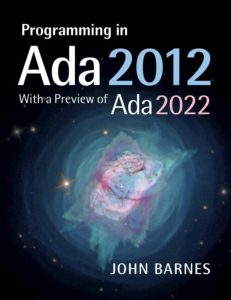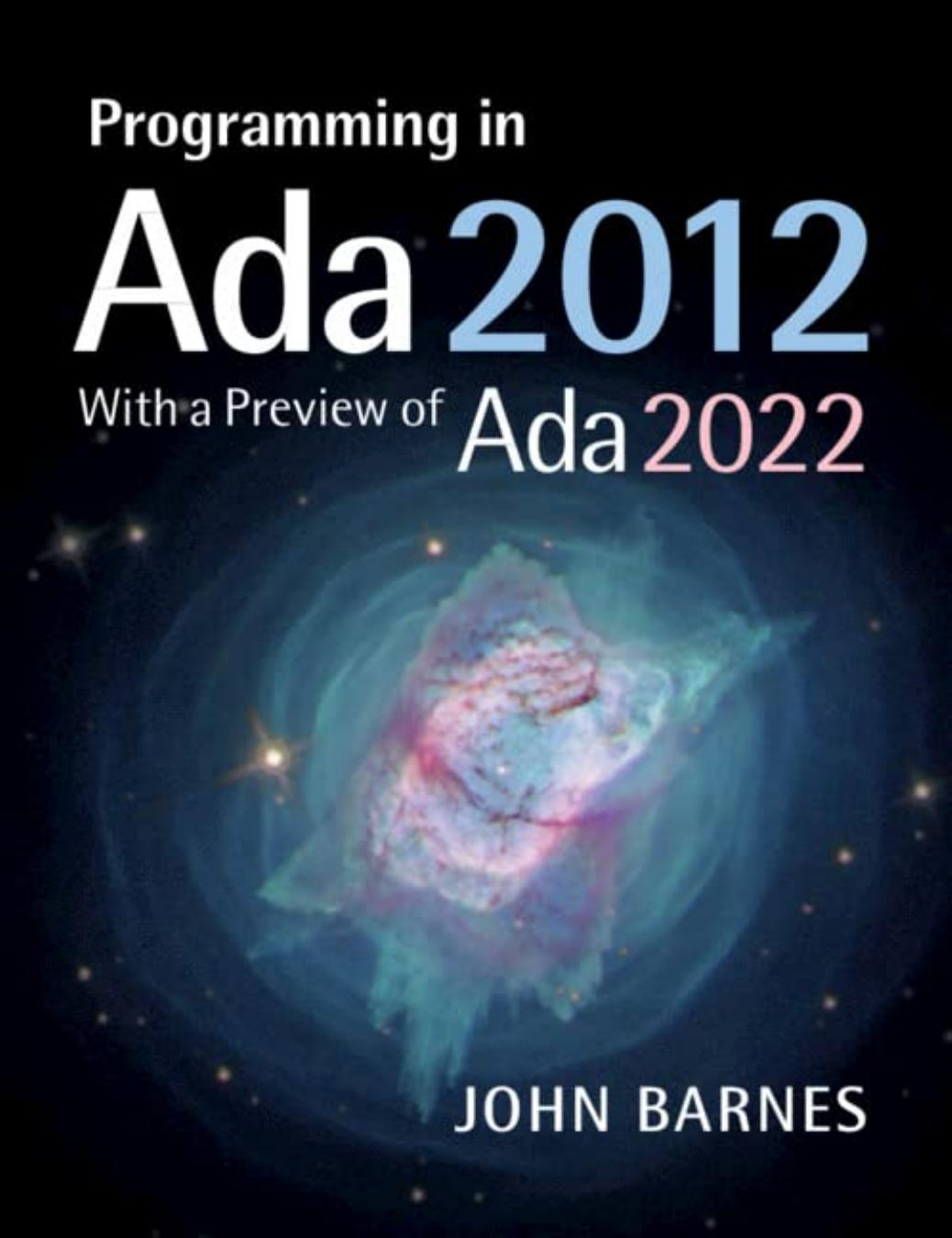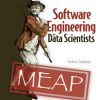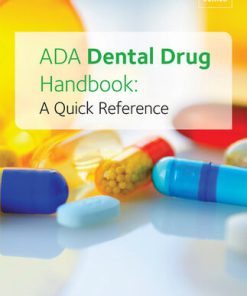Programming in Ada 2012 with a Preview of Ada 2022 2nd Edition by John Barnes 9781009190879 1009190873
$50.00 Original price was: $50.00.$25.00Current price is: $25.00.
Programming in Ada 2012 with a Preview of Ada 2022 2nd Edition John Barnes – Ebook Instant Download/Delivery ISBN(s): 9781009190879, 1009190873

Product details:
- ISBN 10:1009190873
- ISBN 13: 9781009190879
- Author: John Barnes
Programming in Ada 2012 with a Preview of Ada 2022
Table contents:
Part 1 An Overview
1 Introduction
1.1 Standard development
1.2 Software engineering
1.3 Evolution and abstraction
1.4 Structure and objectives of this book
1.5 References
2 Simple Concepts
2.1 Key goals
2.2 Overall structure
2.3 The scalar type model
2.4 Arrays and records
2.5 Access types
2.6 Errors and exceptions
2.7 Terminology
3 Abstraction
3.1 Packages and private types
3.2 Objects and inheritance
3.3 Classes and polymorphism
3.4 Genericity
3.5 Object oriented terminology
3.6 Tasking
4 Programs and Libraries
4.1 The hierarchical library
4.2 Input–output
4.3 Numeric library
4.4 Running a program
Program 1 Magic Moments
Part 2 Algorithmic Aspects
5 Lexical Style
5.1 Syntax notation
5.2 Lexical elements
5.3 Identifiers
5.4 Numbers
5.5 Comments
5.6 Pragmas and aspects
6 Scalar Types
6.1 Object declarations and assignments
6.2 Blocks and scopes
6.3 Types
6.4 Subtypes
6.5 Simple numeric types
6.6 Enumeration types
6.7 The type Boolean
6.8 Categories of types
6.9 Expression summary
7 Control Structures
7.1 If statements
7.2 Case statements
7.3 Loop statements
7.4 Goto statements and labels
7.5 Statement classification
8 Arrays and Records
8.1 Arrays
8.2 Array types
8.3 Array aggregates
8.4 Characters and strings
8.5 Arrays of arrays and slices
8.6 One-dimensional array operations
8.7 Records
9 Expression Structures
9.1 Membership tests
9.2 If expressions
9.3 Case expressions
9.4 Quantified expressions
10 Subprograms
10.1 Functions
10.2 Operators
10.3 Procedures
10.4 Aliasing
10.5 Named and default parameters
10.6 Overloading
10.7 Declarations, scopes, and visibility
11 Access Types
11.1 Flexibility versus integrity
11.2 Access types and allocators
11.3 Null exclusion and constraints
11.4 Aliased objects
11.5 Accessibility
11.6 Access parameters
11.7 Anonymous access types
11.8 Access to subprograms
11.9 Storage pools
Program 2 Sylvan Sorter
Part 3 The Big Picture
12 Packages and Private Types
12.1 Packages
12.2 Private types
12.3 Primitive operations and derived types
12.4 Equality
12.5 Limited types
12.6 Resource management
13 Overall Structure
13.1 Library units
13.2 Subunits
13.3 Child library units
13.4 Private child units
13.5 Mutually dependent units
13.6 Scope, visibility, and accessibility
13.7 Renaming
13.8 Programs, partitions, and elaboration
Program 3 Rational Reckoner
14 Object Oriented Programming
14.1 Type extension
14.2 Polymorphism
14.3 Abstract types and interfaces
14.4 Primitive operations and tags
14.5 Views and redispatching
14.6 Private types and extensions
14.7 Controlled types
14.8 Multiple inheritance
14.9 Multiple implementations
15 Exceptions
15.1 Handling exceptions
15.2 Declaring and raising exceptions
15.3 Checking and exceptions
15.4 Exception occurrences
15.5 Exception pragmas and aspects
15.6 Scope of exceptions
16 Contracts
16.1 Aspect specifications
16.2 Preconditions and postconditions
16.3 Type invariants
16.4 Subtype predicates
16.5 Messages
17 Numeric Types
17.1 Signed integer types
17.2 Modular types
17.3 Real types
17.4 Floating point types
17.5 Fixed point types
17.6 Decimal types
18 Parameterized Types
18.1 Discriminated record types
18.2 Default discriminants
18.3 Variant parts
18.4 Discriminants and derived types
18.5 Access types and discriminants
18.6 Private types and discriminants
18.7 Access discriminants
19 Generics
19.1 Declarations and instantiations
19.2 Type parameters
19.3 Subprogram parameters
19.4 Package parameters
19.5 Generic library units
20 Tasking
20.1 Parallelism
20.2 The rendezvous
20.3 Timing and scheduling
20.4 Protected objects
20.5 Simple select statements
20.6 Timed and conditional calls
20.7 Concurrent types and activation
20.8 Termination, exceptions, and ATC
20.9 Signalling and scheduling
20.10 Summary of structure
21 Object Oriented Techniques
21.1 Extension and composition
21.2 Using interfaces
21.3 Mixin inheritance
21.4 Linked structures
21.5 Iterators
21.6 Generalized iteration
21.7 Object factories
21.8 Controlling abstraction
22 Tasking Techniques
22.1 Dynamic tasks
22.2 Multiprocessors
22.3 Synchronized interfaces
22.4 Discriminants
22.5 Task termination
22.6 Clocks and timers
22.7 The Ravenscar profile
Program 4 Super Sieve
Part 4 Completing the Story
23 Predefined Library
23.1 The package Standard
23.2 The package Ada
23.3 Characters and strings
23.4 Numerics
23.5 Input and output
23.6 Text input–output
23.7 Streams
23.8 Environment commands
Program 5 Wild Words
24 Container Library
24.1 Organization of library
24.2 Doubly linked lists
24.3 Vectors
24.4 Maps
24.5 Sets
24.6 Trees
24.7 Holder
24.8 Queues
24.9 Bounded containers
24.10 Indefinite containers
24.11 Sorting
24.12 Summary table
25 Interfacing
25.1 Representations
25.2 Unchecked programming
25.3 The package System
25.4 Storage pools and subpools
25.5 Other languages
Program 6 Playing Pools
26 The Specialized Annexes
26.1 Systems Programming
26.2 Real-Time Systems
26.3 Distributed Systems
26.4 Information Systems
26.5 Numerics
26.6 High Integrity Systems
27 Finale
27.1 Names and expressions
27.2 Type equivalence
27.3 Overall program structure
27.4 Portability
27.5 Penultimate thoughts
27.6 SPARK
People also search:
programming in ada 2012
programming in ada 2012 pdf
programming in ada 2012 with a preview of ada 2022
programming in ada 2012 john barnes pdf
programming in ada
You may also like…
Uncategorized
Computers - Programming
Computers - Programming
Computers - Programming
Uncategorized
Romance - Contemporary Romance
Computers - Programming
Reference - Almanacs & Yearbooks
A Social History of the Media 4th Edition Ada Briggs Peter Burke












